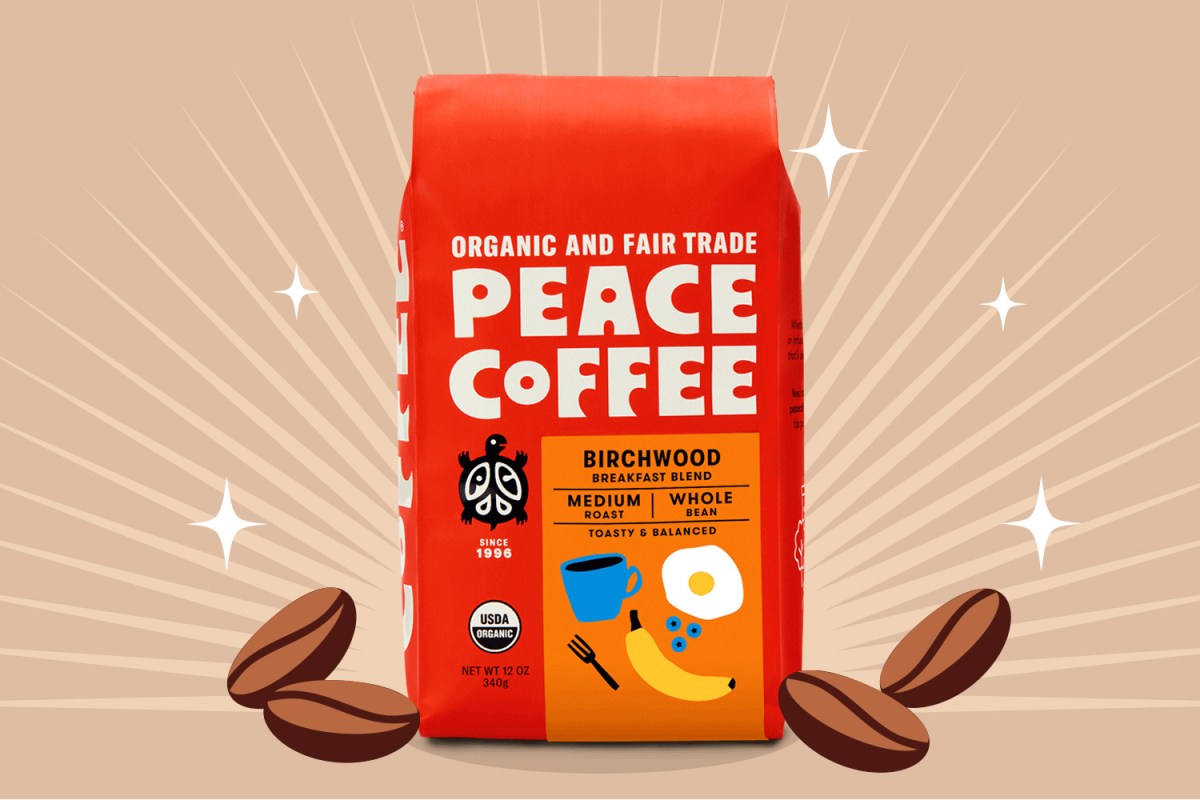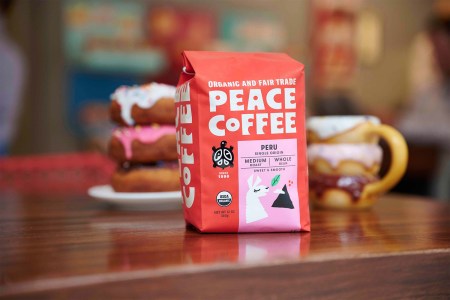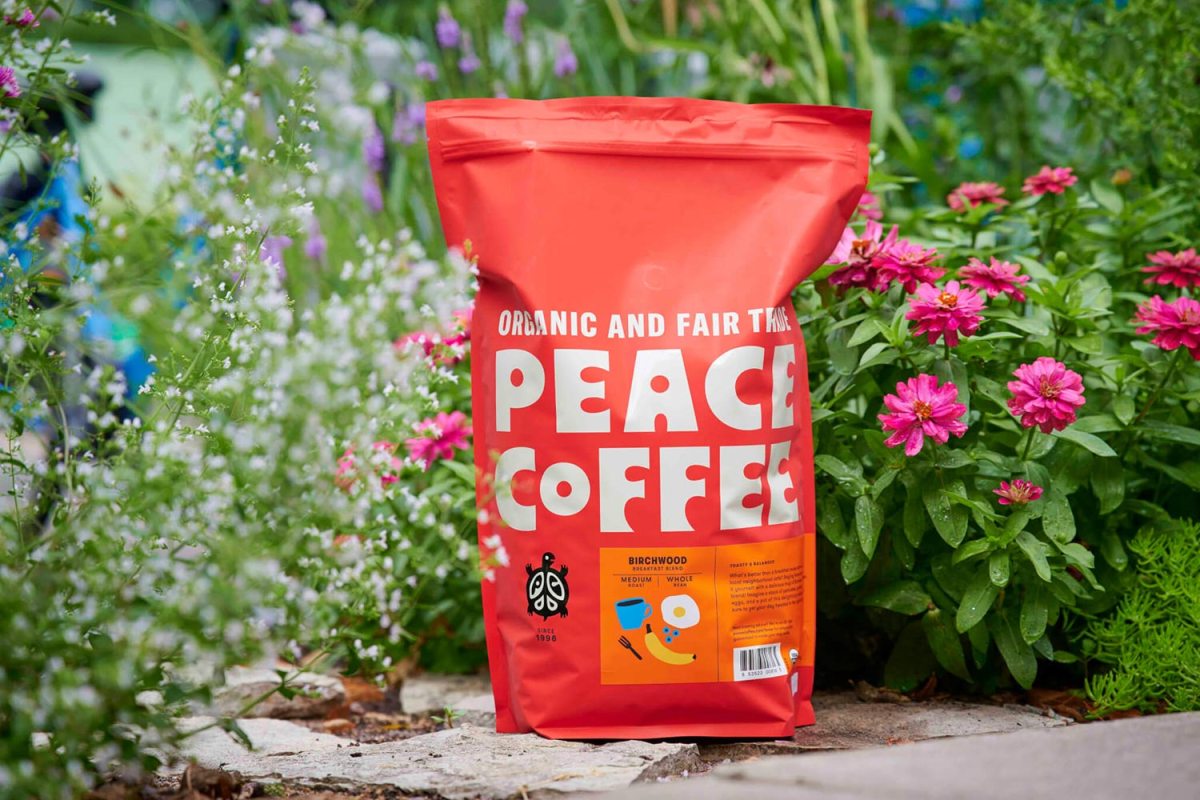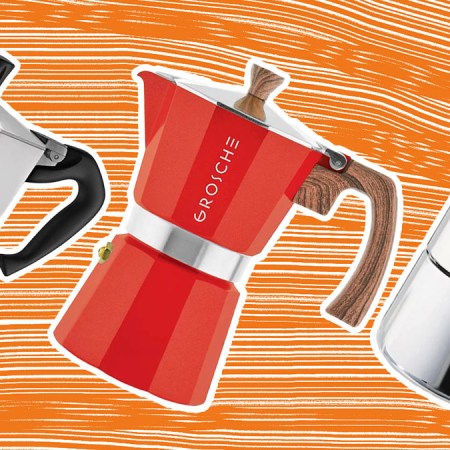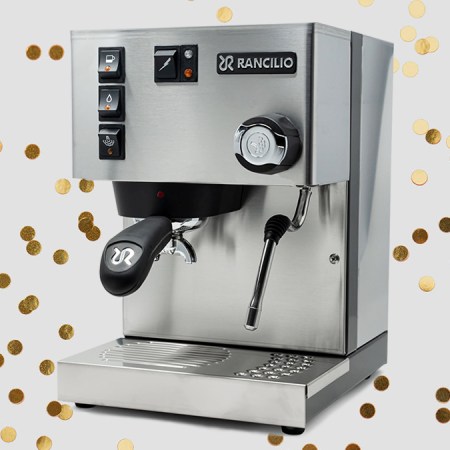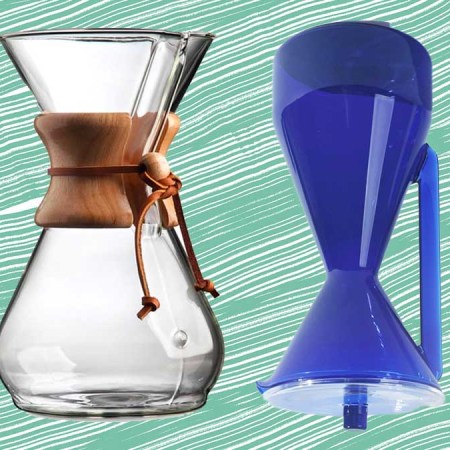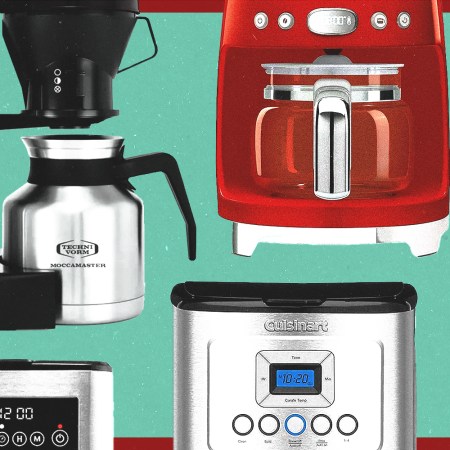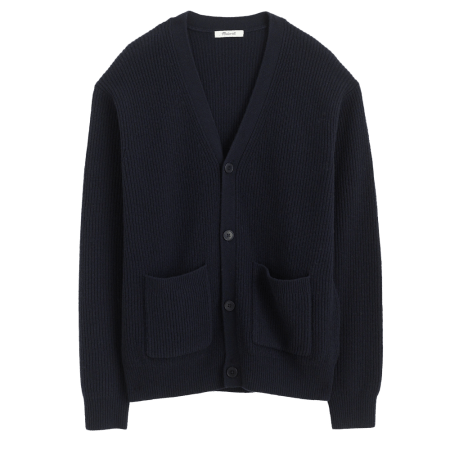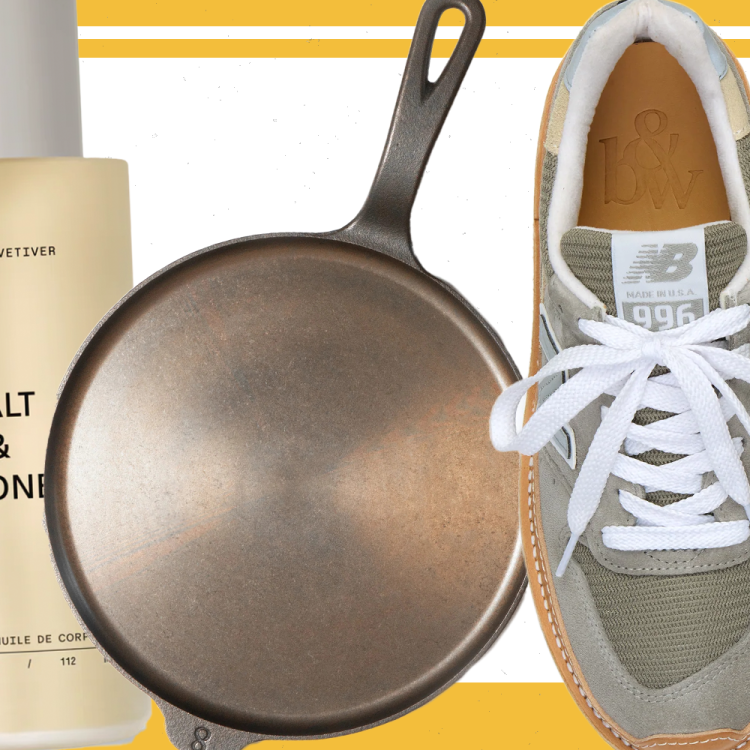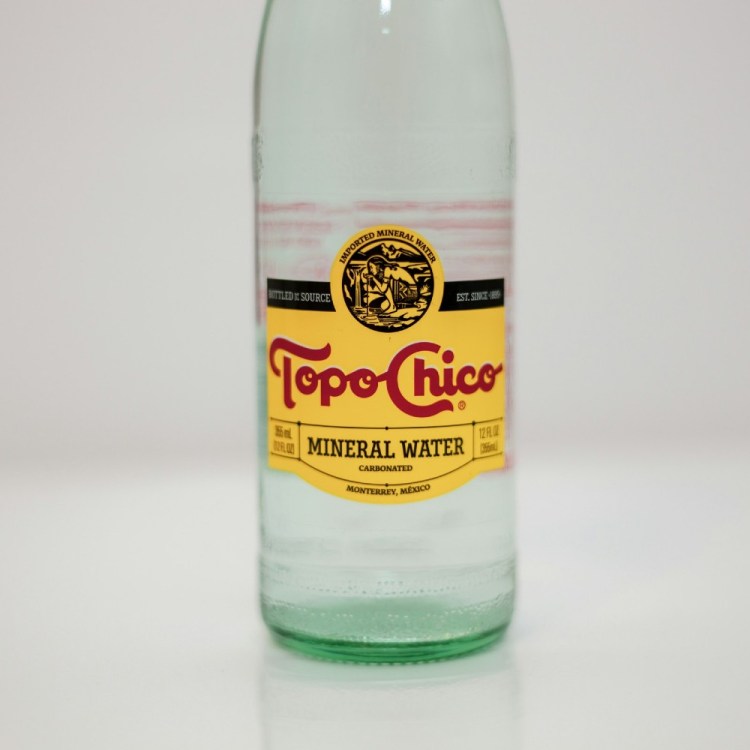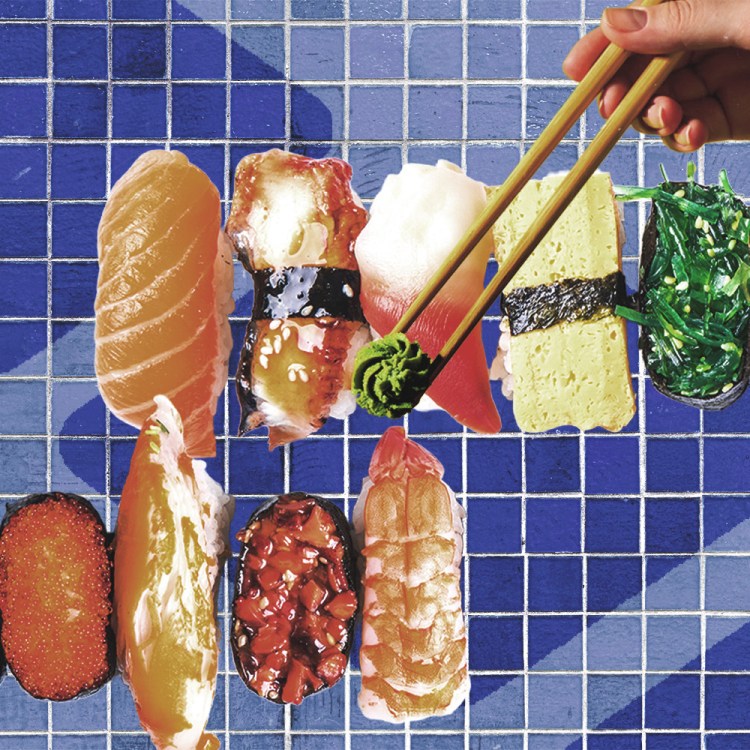Nota bene: All products in this article are independently selected and vetted by InsideHook editors. If you buy something, we may earn an affiliate commission.
We make tens of thousands of decisions a day, mostly without recognizing them as such. A good chunk of these predicaments come down to a simple dichotomy: what’s good versus what’s easy. Taking the bus is good for the environment, but driving your car is easy (plus, there are seat warmers). Cooking dinner at home is good for your health and wallet, but ordering pizza is easy (plus, there is that one shop with the salty ricotta). Going to bed early is good for your sanity, but I forgot to do the New Yorker crossword today…
With Peace Coffee, you don’t need to make these kinds of decisions. I know, I know, changing the coffee you make in the morning is a tall order, especially because it’s so easy to just grab a bag of beans or can of grounds when you’re grocery shopping, instead of going through the process of ordering it online. But what if I told you there was a company selling organic, fair trade and sustainable beans that can be customized to suit your brewing needs and produce such a tantalizing mug of coffee that it would make Dale Cooper forget his catchphrase?
I’m lucky enough to live in Minnesota where Peace Coffee is based, so I’ve known about them for my entire coffee-drinking life. Whether you’re a Folgers drinker or total bean snob, I see the company’s Birchwood blend — a medium roast with an aroma of roasted hazelnut, graham, smoke and vanilla, and tasting notes of bittersweet chocolate, honey and cedar — the same way I see Alison Roman’s shortbread cookies; that is, it’s a good recommendation for anyone. But even though they’ve been churning out beans since 1996, there’s a good chance you haven’t heard of them because they’ve generally stuck around the Midwestern area.
That appears to be changing a bit. Peace Coffee is making its way to more stores in more states, and they’re dabbling in different brewing methods to attract more drinkers. So I figured now’s the perfect time to bring my personal recommendation to the masses.
How I Brew It
I’ll admit, there’s a 99% chance my coffee consumption is going to be different than yours. But this is something I swear by, so I’ll just give you the overly caffeinated details.
Peace makes a specific espresso blend called Black Squirrel (medium roast, tasting notes of baker’s cocoa, brown sugar and macadamia). I like it. I don’t love it. But I do make espresso most mornings (in my Rancilio Silvia), and you want to know my secret? I just use other beans that aren’t labeled “espresso.” Birchwood Breakfast Blend, Twin Cities Dark Roast, Tree Hugger Dark Roast — all these blends make a sublime shot of espresso once you get the grind dialed in just right. I also have a French press, Chemex and Mr. Coffee, and the thing is, once you have great coffee, the brewing method matters so much less. Yes, you lose some depth when you leave it to Mr. Coffee to extract the most out of your lovingly grown, dried and roasted beans, but not much in this case.
My other personal eccentricity is the way I like to buy these beans: not just in whole bean form rather than pre-ground, but in the five-pound bags Peace Coffee sells. I’m currently scraping the bottom of a bag of Birchwood beans, so I now have to decide whether to stick with my tried and true or switch it up for the next month — possibly ordering one of their seasonal releases, which are my personal version of PSL fever; right now they’re still selling Snowshoe, their winter blend, a medium roast with a warming aroma of toasted chestnut, dark chocolate and nutmeg, and delightful tasting notes of butterscotch, strawberry, toasted walnut and spirit bitters. Not your average cup, that one.
But basically any way you want it, Peace has an option available for you. Beans come in 12-ounce and five-pound bags (some in 20-ounce bags too), and are available whole or in one of three grinds (fine, coarse or extra coarse). As I mentioned before, they’re also expanding into some new areas, with compostable pods (great for all you pod-brewing heathens) being relatively new to the lineup. And once you dial in all those options to your perfect coffee order, you can set up a subscription with them (which nets you a nice 15% discount, or 30% if you’re subscribing for the first time), so you never run out of coffee. I personally like to hand-select my order every month depending on how much I’m drinking or if I want to swap in a seasonal roast, so I don’t have a subscription set up — but that also means I have indeed run out of beans before. Luckily, my local grocery store stocks Peace, so it was only a minor morning catastrophe.
Why I Swear By It
I’ve already told you about the taste, and that should be good enough to at least buy a 12-ounce bag of beans and give Peace Coffee a whirl. Though, again, there’s the ease factor. You’ve already got coffee in your pantry, from a brand that you (hopefully) like, and chances are my favorite isn’t available in your local supermarket.
There’s another element at play here, though. Peace Coffee actually gives a damn about coffee, and they’ve been that way since before it was fashionable. I’m not talking about making sure the beans are high-quality enough to meet the rigorous standards of the surly barista at your local $7 latte cafe. I’m talking about giving a damn about coffee production, the many workers along the entire coffee supply chain from Honduras and Colombia to Minnesota, and the future of your morning mug in the face of a changing climate.
Peace Coffee actually started not as a business looking to make it big, but as an initiative of the Institute for Agriculture and Trade Policy, a nonprofit dedicated to sustainable farming. In essence, they wanted to help small-scale farmers in Mexico produce fair-trade and organic coffee — and out of that initial spark has grown a much larger, but still mission-driven, company. Today, they’re finding new ways to show a better path forward for the coffee industry, from becoming a certified B Corporation to investing in climate adaptation for farmers who are already being impacted by climate change.
If the end product giving off steam in your favorite mug didn’t taste like a chocolatey, hazelnutty, vanilla-y hug with a dash of honey, then all of these good practices might not matter to you. But the thing about Peace Coffee is that it’s good and it’s easy. Seriously, try the Birchwood Breakfast Blend, then email me and tell me I was right.
We've put in the work researching, reviewing and rounding up all the shirts, jackets, shoes and accessories you'll need this season, whether it's for yourself or for gifting purposes. Sign up here for weekly style inspo direct to your inbox.
